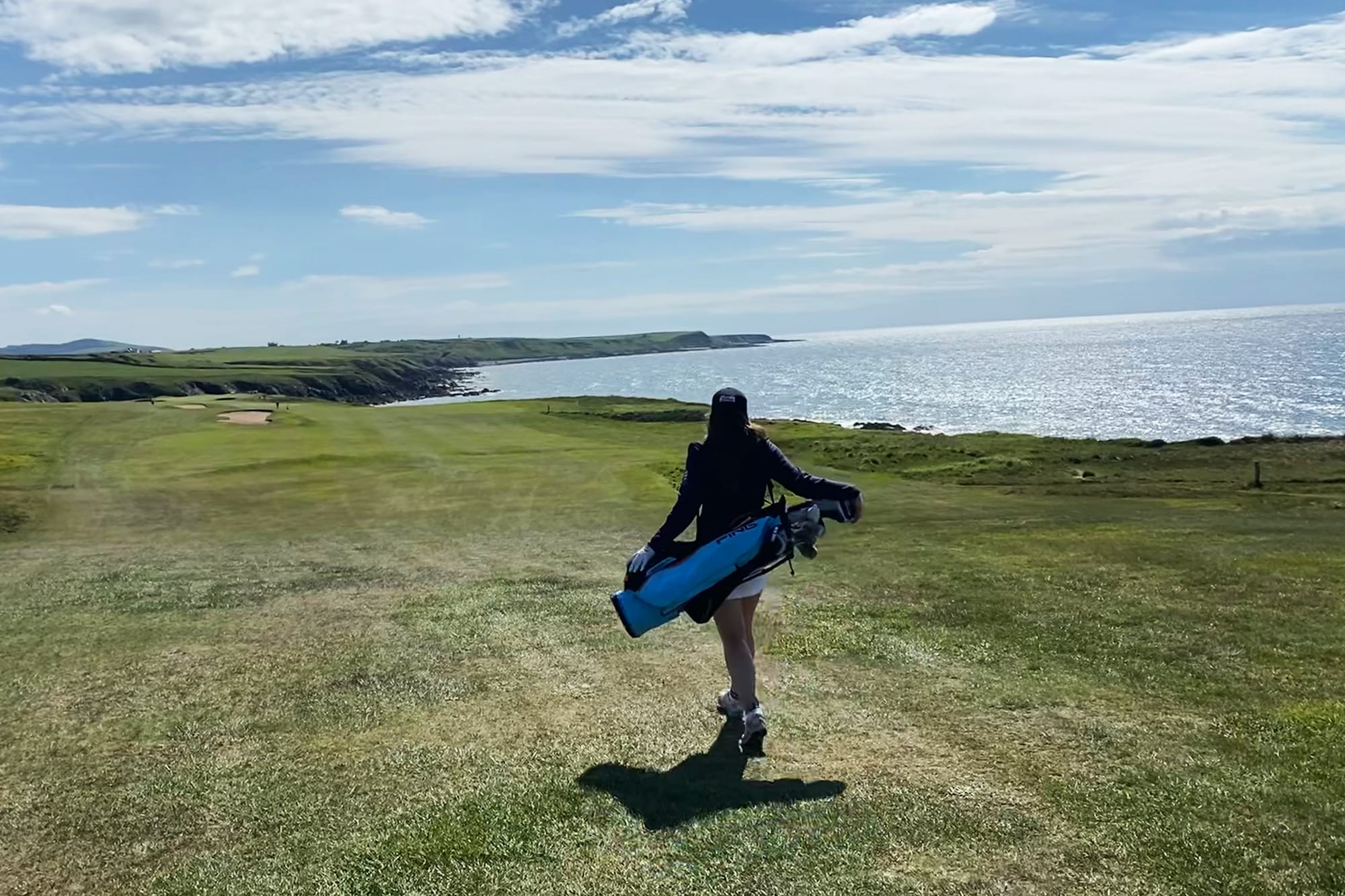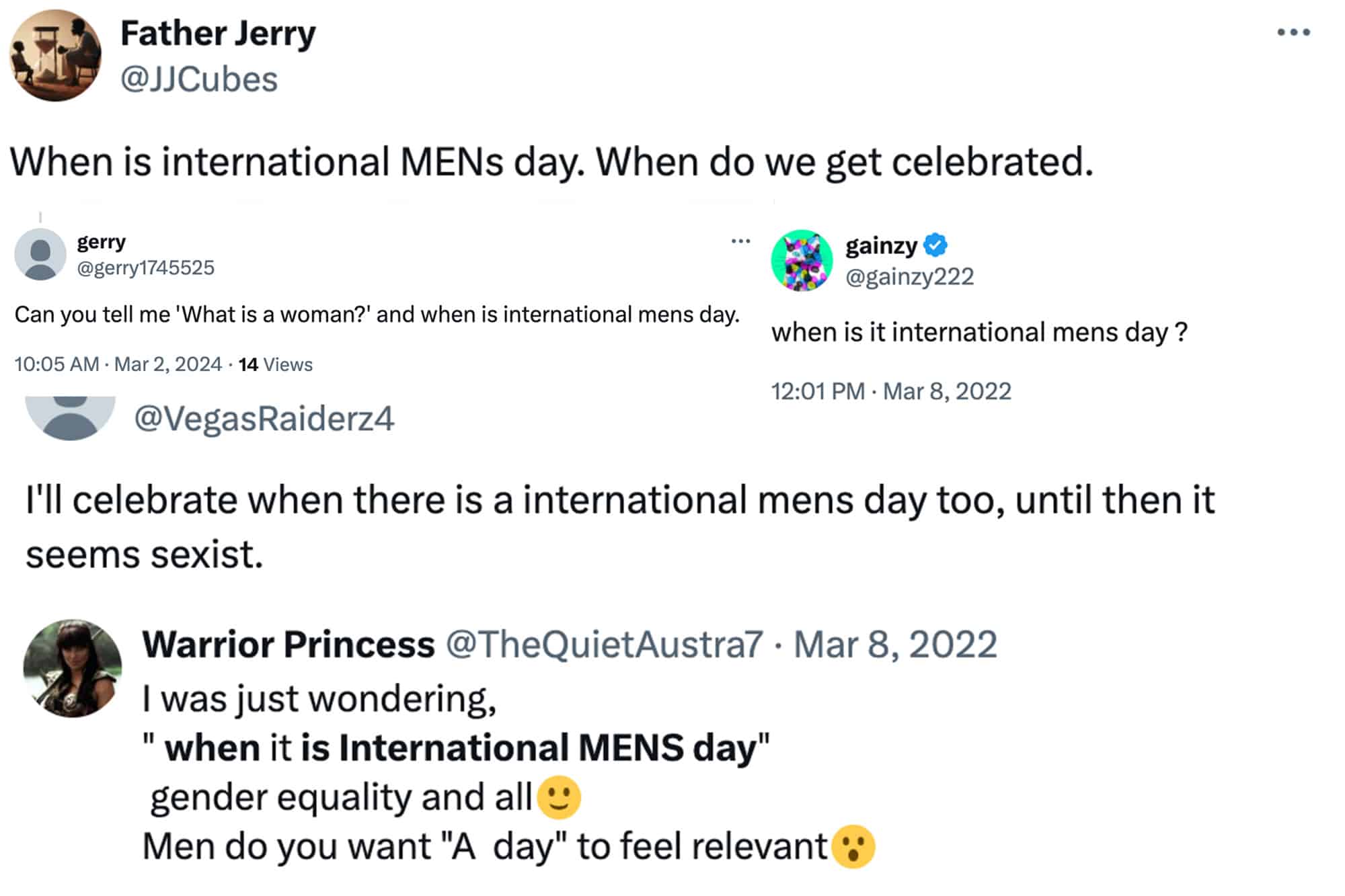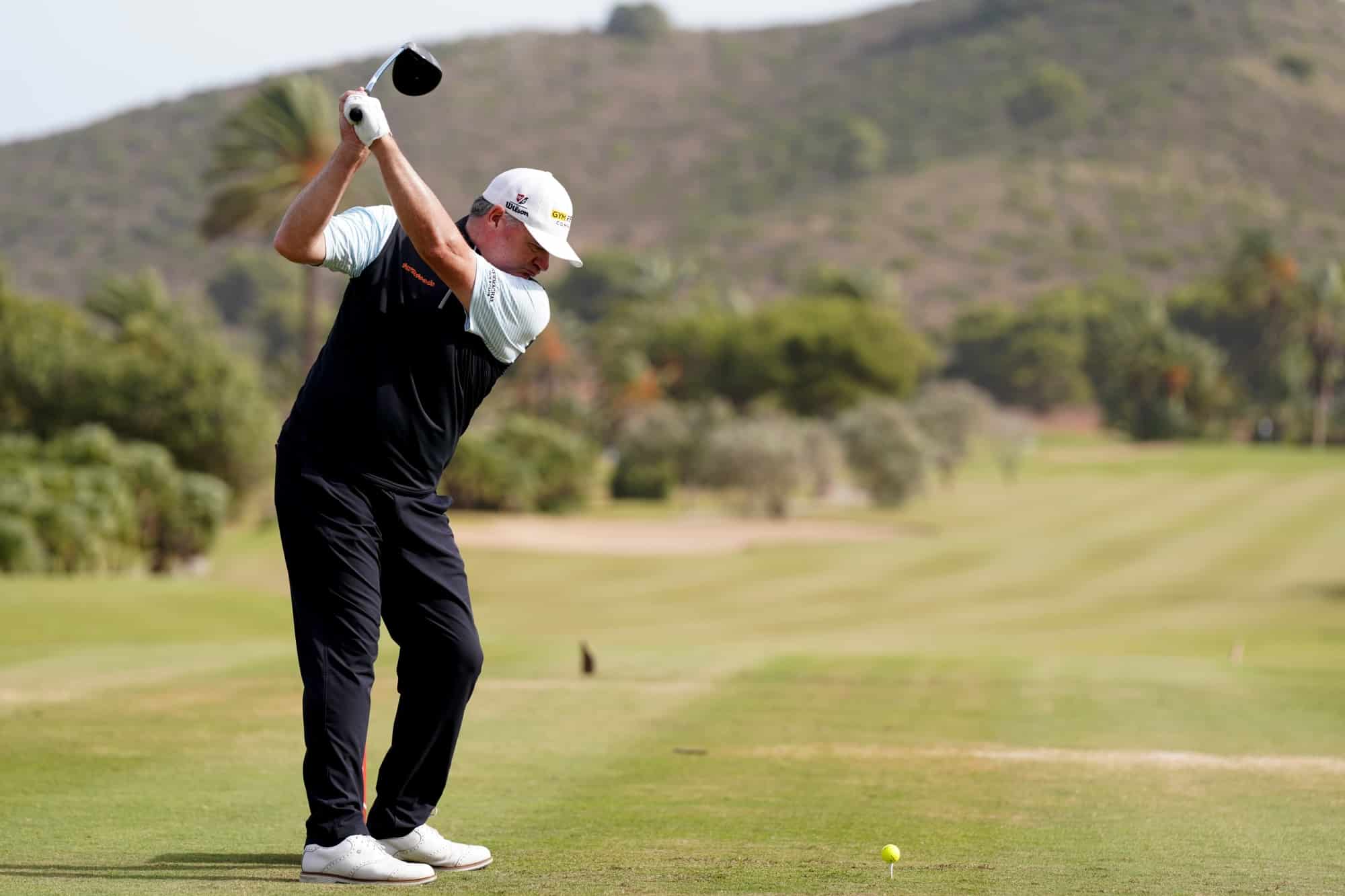
This is why your golf club lives from hand to mouth
Why do so many clubs struggle to maintain a profit or surplus? In the latest dispatch from our series, The Price of Club Golf, we tackle depreciation
“The vast majority of UK golf clubs are living a hand to mouth existence”.
That assertion from Kevin Fish may come as a surprise, but then so may the simple solution he recommends.
“That problem can be avoided with just two things. Better planning, and more honesty!”
Fish, a leading industry figure who has studied the accounts of more than 250 UK golf clubs through his consultancy Contemporary Club Leadership (https://ccl.services), can reveal around a fifth of our UK golf clubs fail to break even, and the vast majority of those that do, dare to perform only just better than that.
“Theres a reason for that,” he said. “Golf Club Committees hate to be unpopular – and nobody makes friends in the clubhouse bar by putting fees up.
“Members hate to see a club lose money, but bizarrely they also hate to see their club make money! So the only popular Treasurers are those that break even! How many other industries are up against that mindset?”
Golf club depreciation: What is it and how does it affect your club?
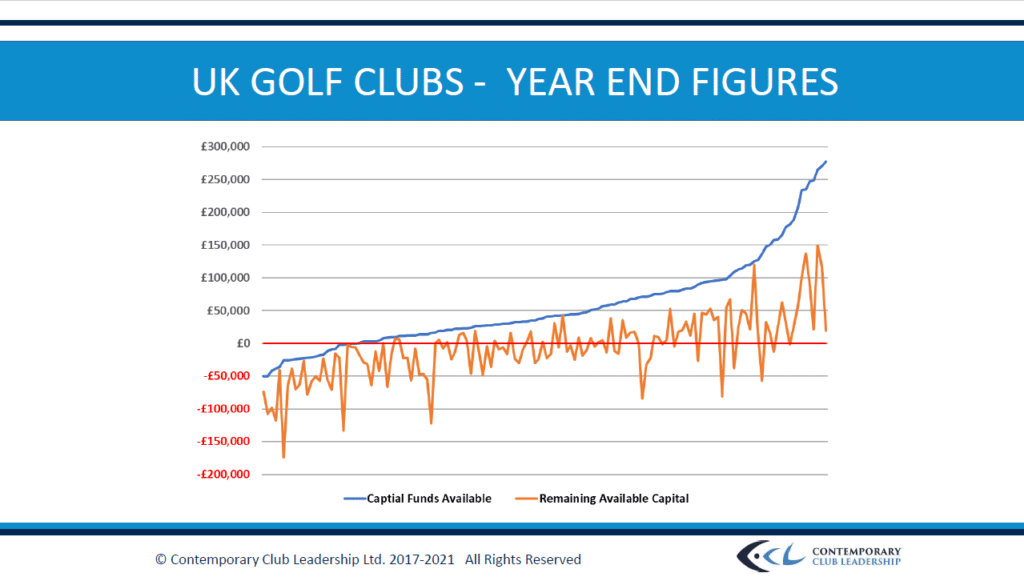
In this chart the blue line shows a set of year end results from UK golf clubs, while the zig zag orange lines adds in each club’s allocation for depreciation. Fish says it is clear very few clubs have any funds left to invest in their development – hence the hand to mouth analogy.
What is depreciation?
Depreciation is an accounting concept that charts the reduction in the value of an asset over the period of its useful life. An example may be the computer system throughout the club operation, which may be written off over three years.
This helps to spread the impact of the purchase over that period, but also crucially places a flag in the ground to remind the club committee it is highly likely the equipment will need to be replaced at or near to that point.
Why is this such a problem at golf clubs?
Fish explains: “The issue is that most clubs don’t put that money aside. The lack of budgeting for the replacement of assets means that when that equipment does need to be replaced, they simply haven’t been making enough profit to cover those highly predictable costs.
“Now if you add up all of the assets that need to be replaced through each department of a club, you can see the big problem coming further down the line.
“The best example I can give you is irrigation. As a Club Manager I oversaw the project to put irrigation in at my club and it was a low six figure purchase. Now that replacement cost is highly likely to be a low seven figure purchase.”
He concluded: “Clubs may be showing depreciation in their accounts, but are they putting the money away to replace these items, and are they factoring in the current cost to replace them? I fear that most Committees are just leaving the problem for their successors to deal with.”
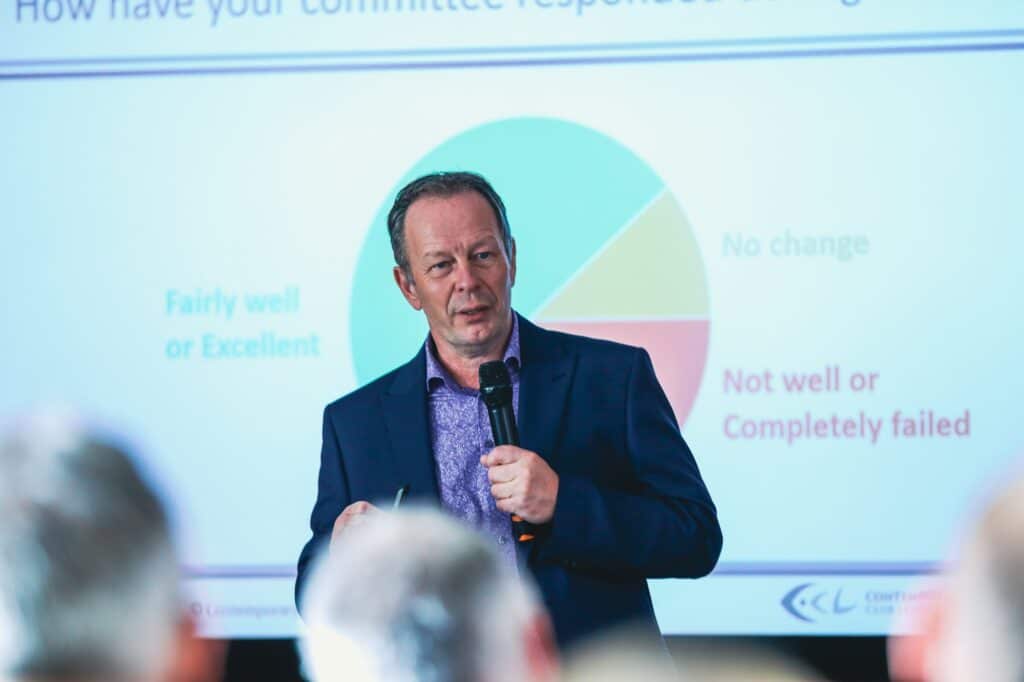
So what do clubs need to do ?
Fish says: “Better budgeting, and more openness and transparency with your membership. Members are much brighter than we give them credit for, and will generally acknowledge and support a well-thought through plan.
“The club should start with a list of existing assets and highlight the purpose of them to the membership. Most members will see the importance of replacing these obligatory assets, and recognise that it is better to budget for these over the long term rather than just waiting for them to go BANG.
“Once members embrace their role as owners of a business, rather than just customers, they are far more likely to invest in the business they own, and see it properly maintain and develop their facilities.”
“If a club can take the membership with them on this journey of transparency, we generally see the appetite from the members for demonstrating fiduciary responsibility grow.
“They will see the benefit of budgeting for further aspirational developments, either through greater annual profits, or in the really informed clubs, a dedicated subscription for capital developments. How else will the club continue to thrive and grow?”
Any further advice to Managers and their Boards?
Fish concluded: “Managers have heard me say many times that golf club members are experience rich, but theory poor. It’s up to us to inform and support those members, particularly when it is going to impact their wallets.
“The longer I am in this industry, the clearer it becomes that however well intentioned a Committee and Manager are, a failure to engage the membership in authentic transparent consultation will result in a lack of trust, misinformation, unrest and yes, much worse.
“Be open with your members, show them how business-like you are behaving for their benefit, and our experience at CCL shows that they will mirror your commitment to the club.”
- This piece also appears in the GCMA’s monthly Insights newsletter that is packed with expert opinion on matters relating to golf club management. Sign up to Insights for FREE here.

Now have your say
What do you make of golf club depreciation? Did you know your golf club could be in this kind of difficulty? Let me know your thoughts by leaving a comment on X.
Steve Carroll

A journalist for 25 years, Steve has been immersed in club golf for almost as long. A former club captain, he has passed the Level 3 Rules of Golf exam with distinction having attended the R&A's prestigious Tournament Administrators and Referees Seminar.
Steve has officiated at a host of high-profile tournaments, including Open Regional Qualifying, PGA Fourball Championship, English Men's Senior Amateur, and the North of England Amateur Championship. In 2023, he made his international debut as part of the team that refereed England vs Switzerland U16 girls.
A part of NCG's Top 100s panel, Steve has a particular love of links golf and is frantically trying to restore his single-figure handicap. He currently floats at around 11.
Steve plays at Close House, in Newcastle, and York GC, where he is a member of the club's matches and competitions committee and referees the annual 36-hole scratch York Rose Bowl.
Having studied history at Newcastle University, he became a journalist having passed his NTCJ exams at Darlington College of Technology.
What's in Steve's bag: TaylorMade Stealth 2 driver, 3-wood, and hybrids; TaylorMade Stealth 2 irons; TaylorMade Hi-Toe, Ping ChipR, Sik Putter.


